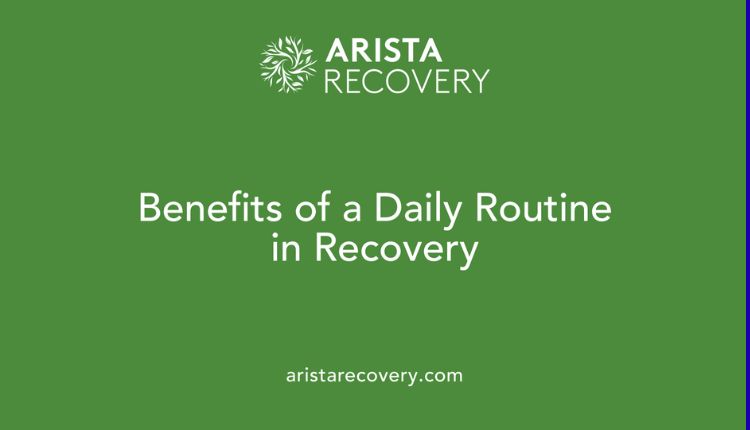Key Takeaways
- Structured routines provide stability and reduce anxiety during recovery.
- Incorporating healthy habits into daily schedules promotes overall well-being.
- Consistent routines enhance self-discipline and accountability.
- Engaging in meaningful activities fills time previously occupied by substance use.
- Flexibility within routines allows for adaptation to life’s unpredictability.
Establishing a consistent daily rhythm can be a powerful anchor for individuals navigating life after addiction treatment. Predictable routines help replace chaos with structure, providing a sense of stability that supports emotional balance and mental clarity. When each day follows a familiar pattern, it becomes easier to manage stress, maintain focus, and make healthy decisions that align with recovery goals. Over time, these steady habits reinforce accountability and create momentum toward lasting wellness.
For many on the recovery journey, professional guidance and a supportive environment make it easier to build these healthy patterns. Programs such as those offered at rehab in Dover, NJ, often emphasize the importance of daily structure as part of comprehensive aftercare. Through scheduled activities, consistent therapy sessions, and regular self-care practices, individuals learn to navigate daily challenges with confidence. This balance of routine and flexibility fosters resilience and strengthens the foundation for long-term recovery.
The Role of Routine in Recovery
Substance use often introduces unpredictability and chaos, disrupting meaningful daily patterns. The transition to sobriety can at first feel like a void, especially if much of one’s time was previously consumed by addictive behaviors. This lack of structure sometimes opens the door to cravings or relapses, particularly in early recovery. Implementing a daily schedule—structured with activities that uplift and support recovery—fills these gaps with purpose and intent. Each scheduled action, from attending therapy sessions to simple self-care tasks, reinforces a new identity and sense of accomplishment.
Benefits of a Structured Daily Routine
1. Reduces Stress and Anxiety
Stress and anxiety are common triggers for relapse. Without a plan, overwhelming feelings can become unmanageable. A daily routine provides a comforting sense of order, lowering stress by making each day predictable and manageable. Routines can support emotional balance, giving the mind fewer unknowns to worry about and making it easier to stay focused on recovery.
2. Promotes Healthy Living
Integrating healthy practices, such as balanced nutrition, regular physical activity, adequate sleep, and hydration, ensures that the body and mind are well-supported during recovery. Regular exercise is proven to reduce depressive symptoms and stress, both of which commonly affect those overcoming addiction. Planning and preparing healthy meals also restores physical health depleted by substance use and adds an upbeat rhythm to daily life.
3. Enhances Self-Discipline and Accountability
Committing to a routine naturally develops discipline. Repeatedly choosing to stick with healthy routines in the face of temptation or discomfort fosters willpower and accountability. Over time, these patterns become internalized, reinforcing the ability to make strong, sober choices when faced with challenges.
4. Fills Time with Meaningful Activities
Sobriety often brings an abundance of free time. If left unfilled, this idle time can become a risk factor for relapse. Scheduling regular, meaningful activities—like volunteering, hobbies, creative pursuits, or connecting with peers—prevents boredom and aimlessness. These activities add enjoyment and a sense of progress to each day while reinforcing the new, positive identity in recovery.
Practical Steps to Establish a Routine
- Identify Core Activities: Anchor your day with essential tasks such as therapy, group meetings, healthy meals, and exercise. Let these be the foundation of your schedule as they directly support your sobriety and well-being.
- Set Realistic Goals: Begin with manageable changes and adjust your routine gradually. Start with small, achievable habits and build on these successes to avoid burnout and encourage lasting progress.
- Prioritize Self-Care: Make time for activities that recharge you, whether meditation, enjoying a cup of tea, reading, or spending time in nature. Self-care is vital for maintaining balance and protecting mental health during recovery.
- Stay Flexible: Life can be unpredictable, so build flexibility into your routine. Adjust plans as needed when unexpected events occur, and let go of perfectionism to focus on persistence rather than rigid adherence.
- Review and Adjust: Regularly reflect on the effectiveness of your routine. If a particular pattern isn’t helping, don’t hesitate to make changes or try new approaches. Seek guidance from healthcare professionals, recovery coaches, or mentors as needed to refine your plan.
Conclusion
Building a structured daily routine is a cornerstone of lasting recovery. Filling each day with intention creates a life that is not only sober but also deeply fulfilling. By embracing positive habits and staying open to growth and change, individuals can reclaim their future and thrive in sobriety. Remember, every step taken to establish routine is a step toward greater stability, resilience, and joy on the recovery journey.






